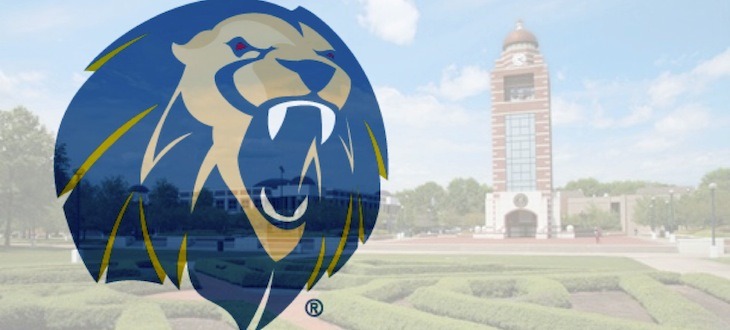UAFS using 3-D printers to make medical grade face shields
by April 9, 2020 1:27 pm 950 views

The University of Arkansas at Fort Smith’s College of Applied Science and Technology is running its fleet of 3-D printers to produce parts for plastic face shields in response to a need for personal protective equipment (PPE).
Derek Goodson, lead faculty for computer graphic technology and animation technology at UAFS, began testing prototypes nearly two weeks ago after local attorney Cheryl Anderson, whose husband works in Mercy-Fort Smith and Baptist Health-Fort Smith an emergency room physician, shared a need for such protective equipment.
When Goodson began work on the project, he downloaded specifications for PRUSA’s open-source protective face shield design for 3-D Printers. The university did not have the material needed to print those, so Anderson got it, said Dr. Ken Warden, dean of applied science and technology.
“Our 3-D printers are education grade, not professional quality. They could not run with the suggested material,” Warden said.
Goodson began experimenting with some material he had at home that is a little more rigid than and not quite as pliable as the other material. It worked. The university had this material in bulk and is able to print many of the components. Goodson has manufactured one component, which is used in conjunction with PETG 0.5mm transparent sheets and elastic banding to complete the shield. Anderson is managing the collaborative effort by several local businesses to make the completed pieces possible, a news release said.
“They made the file open source after going through iterations with different departments of health overseas to come up with a model for the face shields,” Goodson explained. “Protecting medical personnel is one of our primary concerns, and to be able to help them is a really important thing for us.”
The material used for the UAFS-manufactured material is inexpensive and the components are costing about $1.25 to $1.50 each, Warden said.
The printing lab is disinfected regularly, and Goodson wears gloves while printing to avoid contamination.
By April 4, 125 of the 3-D printed pieces were passed along to the next stage of assembly. Each of the 3-D printed pieces takes about four hours to print, and 14 machines are running at a time in the UAFS lab. On April 6 small batches of fully assembled shields were delivered to Mercy Fort Smith and Baptist Van Buren for field testing.
Mercy has contacted Warden and told him they have received a donation of 7,000 masks and are no longer in need of them. So masks will be donated to Baptist and other healthcare and senior care providers in the Fort Smith area, he said.
“We’re very excited to be able to help,” said Goodson. “We’ve seen a lot on the news about the lack of PPE for healthcare professionals, so anything we can do to help and to alleviate that threat, we were happy to do.”
Warden commended Goodson for being responsive to industry needs and finding a way to be able to make the component with UAFS’ capabilities.
“This is a very real representation of how the university is contributing to the wellness of the community,” Warden said.
